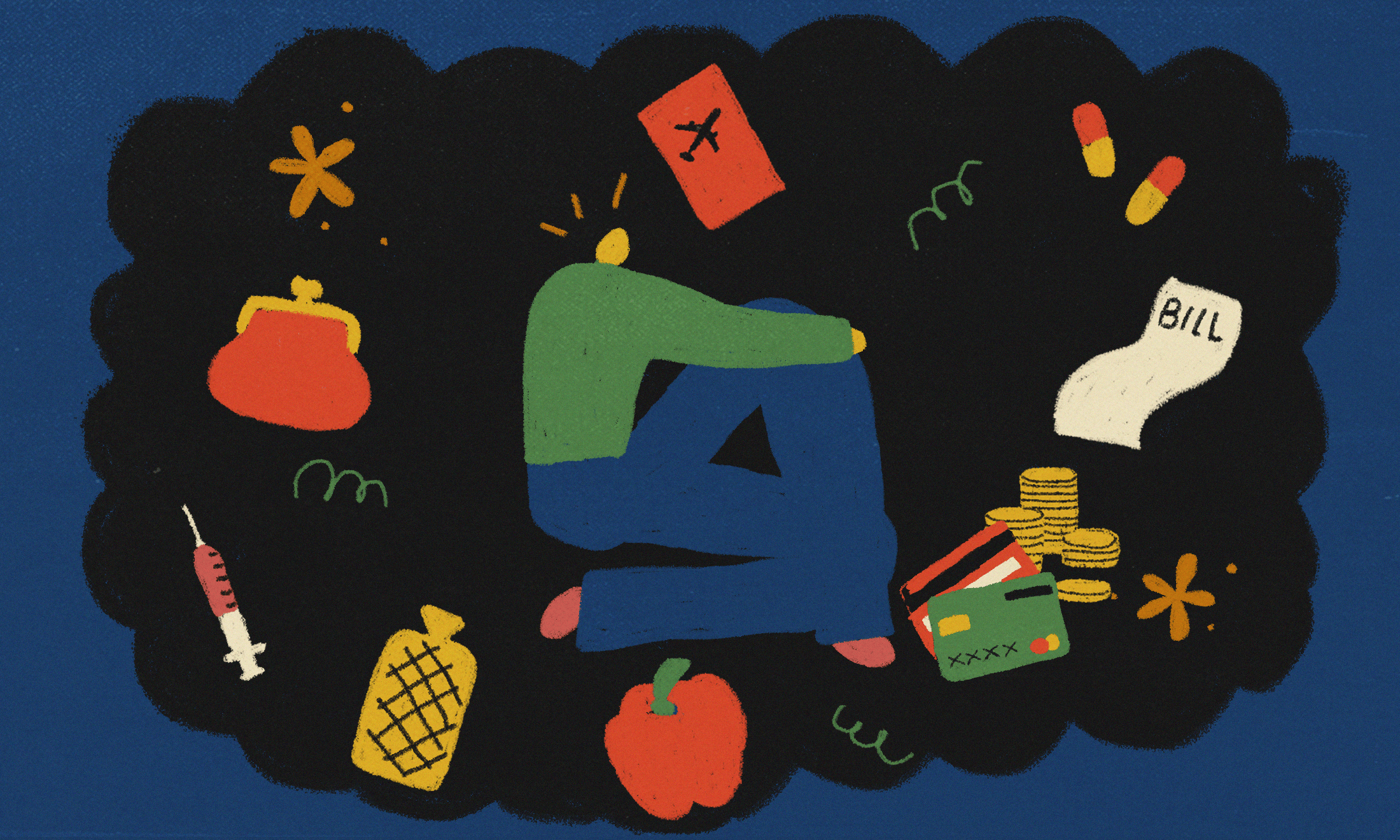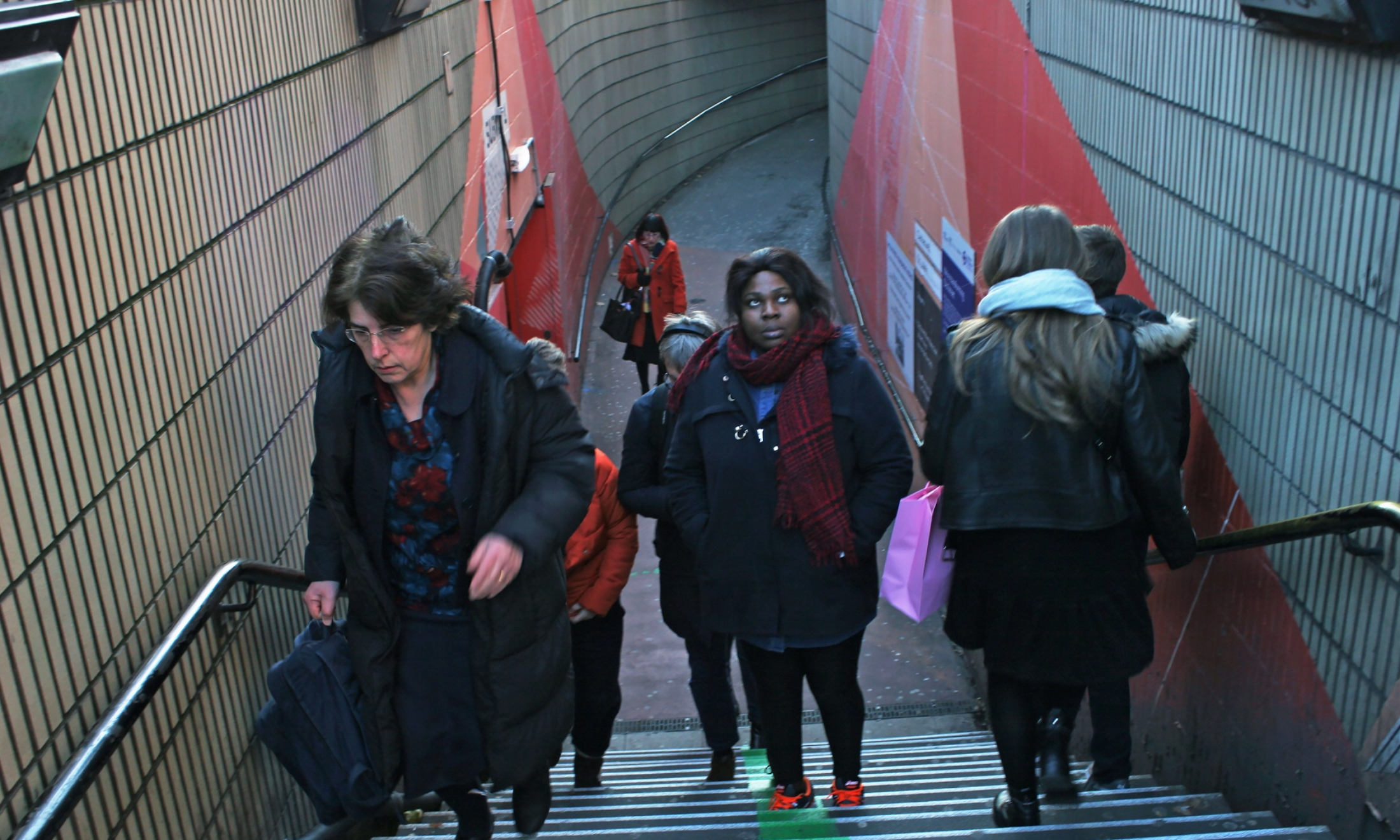
‘It’s the cold that will kill you’: this is what it’s like to be made destitute as an asylum seeker
When Adele had to seek asylum in the UK, she hoped to build a new life. Instead, hostile immigration policy forced her into sleeping on buses. Here, she shares her story.
Moya Lothian-McLean and Edna Mohamed
11 Feb 2020
Trigger warning: mentions of self harm, suicide, sexual assault/rape
All photography featured in ‘Will I Ever Be Safe?’ by Women for Refugee Women
On a mild April morning in 2016, Adele* found herself in the middle of London, UK, six thousand miles away from everything she’d ever known. Days earlier, she had been smuggled out of Goma in the Democractic Republic of Congo, where she’d been hiding after her political activism with a local group attracted unwanted attention too many times. The payoffs to soldiers weren’t working anymore, her comrades said. Adele’s peaceful attempt to lobby for her country to live up to its name and implement actual democracy, had put her at risk of arrest, and potential death. She’d joined the group to build a better future for the DRC. But now the cause would see her forced out of her country, for the foreseeable future.
Her grassroots network came together, with the promise of escape. But Adele had no say in where she was going. Instead, she was told to stay low. Her friends would sort out the details. After three weeks, a man came to see her, snapped a picture of her in a wig and a dress, then left. The next day, he returned and told her to get ready. They were on the move.
“If they ask you anything when we’re travelling, just let me speak,” Adele remembers him saying.
“If they ask you directly who you are, say you are my wife. If they ask you more than two questions, I will jump in. All you need to know is I am your husband and we have two children”.
“Adele’s contact was abandoning her outside the Home Office’s asylum intake unit. His work was finished, he told her”
Then they were off, boarding an eight hour flight to a destination unknown. When they landed, her ‘husband’ informed her they were in London. That weekend they slept in a hotel for two nights. On Monday, he told Adele to get up. She walked nervously beside him as he strode through the capital’s streets, stopping in front of an imposing 20-storey cement tower block.
“This is where I leave you,” he told her.
At first she didn’t understand.
“I said, ‘Fine, when will I see you next?’” she says, recalling the moment,
When Adele’s contact shook his head, the penny dropped. He was abandoning her outside Lunar House in Croydon, home to the Home Office’s asylum intake unit, where all prospective asylum claimants must go to start the process of their application. She asked him why he couldn’t accompany her further, how she was going survive from here but he was firm. His work was finished, he told her.
“If you want to save your life, go in there,” he said, pointing at the entrance. Then he left. Adele still didn’t know his name. She had no family, no friends, no money and only very basic English. She was on her own.
Adele is one of the thousands of people seeking asylum in Britain every year, thanks to the serious threat of persecution in their country of origin. Fear-mongering surrounding those who come to the UK needing refuge means they are subject to draconian and racist immigration policies, known collectively as the “hostile environment”. This can leave them at risk of receiving no meaningful state support and they’re prohibited altogether from seeking employment or standard social housing.
In reality, the number of refugees applying for asylum is barely a drop in the ocean of those migrating to the UK – in 2018 there were only 34, 354 applications made, compared to the total 620,000 people who moved to the UK that year.
But like all migrants, those seeking asylum are unfairly monstered by the press, accused of wanting to take advantage of the UK’s welfare state. It’s a claim made all the more ridiculous when you look at the facts: those who claim asylum in the UK often experience homelessness and destitution during the process, with women particularly vulnerable to additional sexual abuse and gendered violence. A new report by charity Women for Refugee Women has been released today, hoping to shine a harsh spotlight on the reality of what women seeking asylum in the UK face.
Documenting the experiences of 106 women across the UK, it places upsetting statistics alongside photographs snapped by the women made destitute by the state, that depict their experiences. According to WRW’s research, Adele is one of the 46% of women seeking asylum who experience destitution more than once after entering the country. After being left at Lunar House, she entered, only to find no one there could speak French well enough to understand her. Following a scramble to locate an interpreter, she was eventually placed in a hostel, where she managed to make friends with a French speaking woman who helped Adele move to another house. But she didn’t get to enjoy the safety for long.
“After a few months they closed the house,” Adele says. “One day I went out to a charity and when I came back it was closed. Clothes, everything, locked up inside. I called the woman [who helped me] but she was out of the country. I thought ‘Where am I going to go?’”
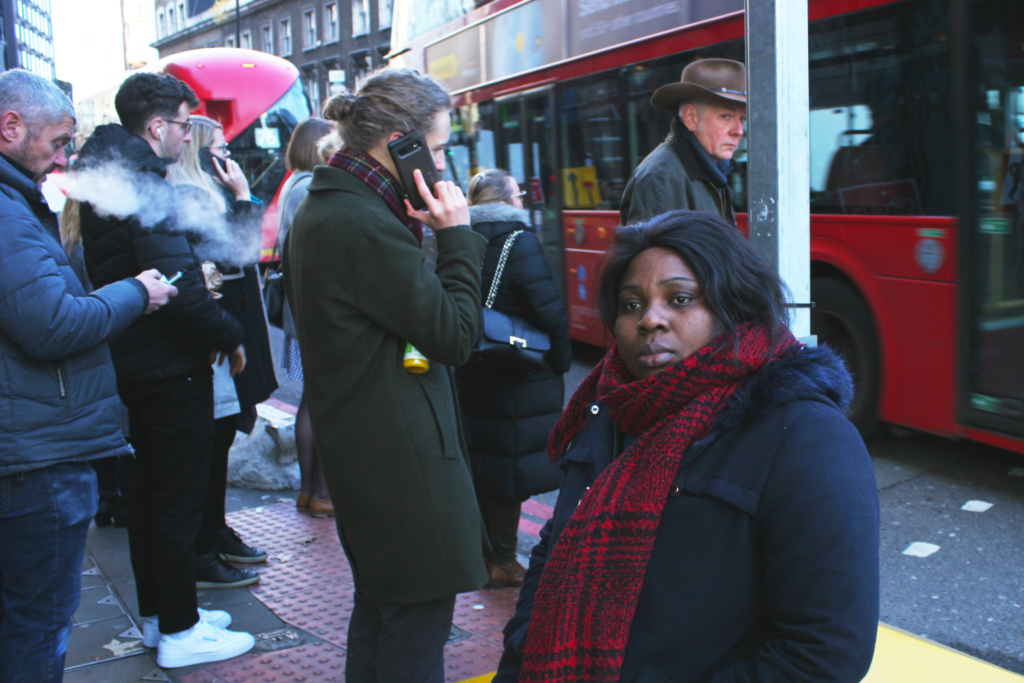
Adele’s animated when she talks, slapping the back of her hand against her palm when she wants to emphasise a point. She takes things in her stride and is matter-of-fact about her experiences. Which makes it all the more shocking when she speaks about the neglect she’s suffered at the hands of the state.
“I called the Home Office and they said we don’t have the space to give you a room now but maybe in a week,” she explains.
“They said you have to write a letter, explain where you’re eating, sleeping and how you’re surviving. But I don’t know English so how am I going to write a letter?”
Adele met a woman in Leicester Square who told her she was bilingual and could write her letter in English for her. But when Adele asked her about potential places to sleep, the woman shrugged helplessly.
“Me too,” she said. “I have nowhere to sleep”.
She and Adele were now two of London’s rough sleepers, a group numbering around 9,000 people, with over half recorded as being refugees or having migrant backgrounds. Austerity measures have resulted in cuts to legal aid and available social housing, leaving thousands of vulnerable people to fend for themselves – just as the system designed it.
“But until proof of Adele’s new circumstances had been processed by the Home Office she didn’t even have the meagre support provided by Section 95. She found herself sleeping on weathered seats of London’s buses, learning which ones had the longest routes so she could try to snatch some sleep”
The hostile environment believes that denying people basic resources will result in them being forced to leave the country. Instead it results in destitution and the denial of fundamental human rights to safety; 96% of women who spoke to WRW said they couldn’t return home if they wanted to, leaving them trapped in limbo in the UK.
Although those who have made asylum claims can appeal for support under Section 95 of the 1999 Immigration and Asylum Act, the financial assistance this offers is only around £5.39 a day, a sum expected to cover needs like phone credit, travel, toiletries like sanitary pads, and clothing. For context, the current London Living Wage is £10.55 per hour.
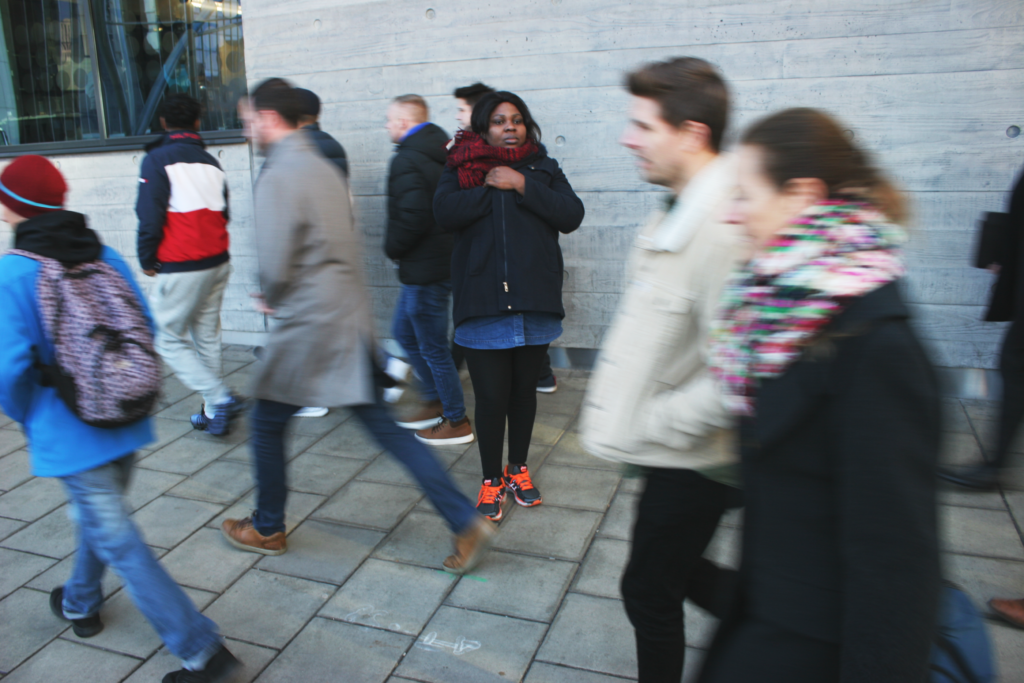
But until proof of Adele’s new circumstances had been processed by the Home Office – which can take up to 58 days – she didn’t even have the meagre support provided by Section 95. She found herself sleeping on weathered seats of London’s buses, learning which ones had the longest routes so she could try to snatch some sleep. But it was dangerous.
“I faced a lot of things living on the bus,” she says. “People verbally abuse you, physically abuse you, it’s all very risky. One time two men came on who were really drunk and began approaching me. Another woman saw what was happening and told me to come and sit with her when she saw them coming closer. I still don’t know what they wanted with me”.
Sexual violence is devastatingly common among women made destitute. In WRW’s report, they found a third of women said they had experienced rape or sexual abuse after seeking asylum in the UK. The real figure is likely to be higher; personal shame and trauma often prevents survivors from reporting their experiences. And Adele’s lack of financial support also meant she went days without food.
“When the cold goes into your body, you feel pain. I was crying like a baby. I didn’t want to live anymore because it was so painful”
“During that time also you don’t have money,” she says, fixing her gaze. “The shelter is only open two days, Monday and Thursday. But Tuesday you have nothing, Wednesday you have nothing, [Saturday and Sunday] you have nothing”.
But it was the cold that caused her to contemplate harming herself. Like 56% of asylum seeking women who spoke to WRW, Adele experienced suicidal thoughts as a result of her circumstances.
“If there was anything I could change in this country, it would be that [all] people are given somewhere to lay their heads at night because the cold will kill you,” she says, slowly. “When the cold goes into your body, you feel pain. I caught a cold once; it was so painful, I was crying like a baby.
“I even asked myself whether I wanted to die. I didn’t want to live anymore because it was so painful. So if I could ask something of this country it was that they need to give people on the streets a place to sleep, for me”.
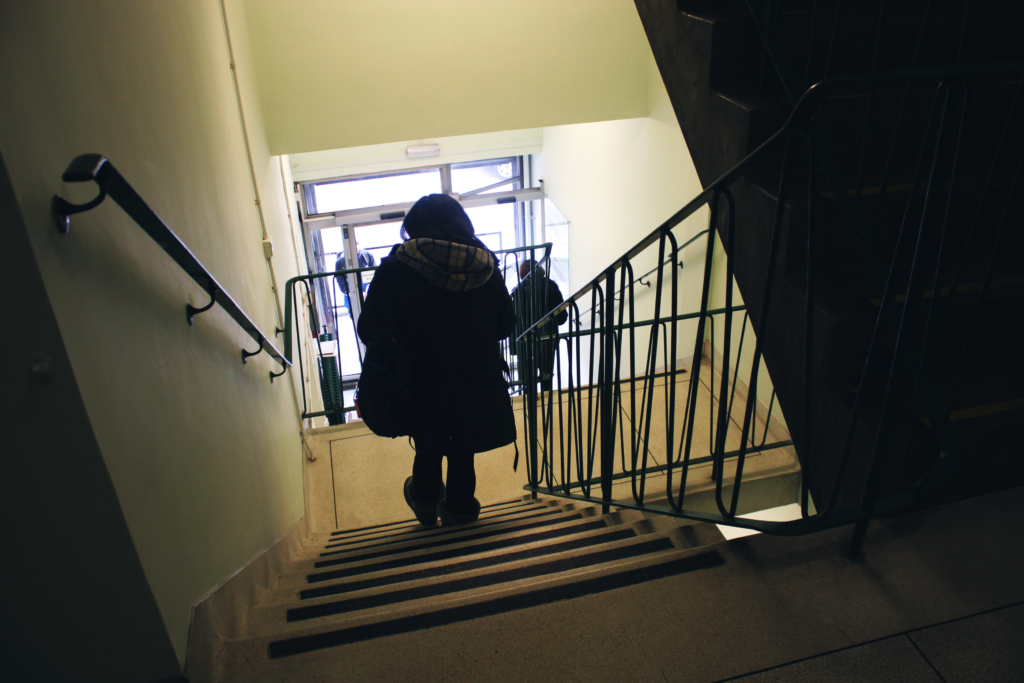
The Kafkaesque bureaucracy of Home Office immigration policy also meant that when Adele did find a place to bed to sleep in, she was forced to give it up.
“I met a woman who said I could stay at her house for two days a week. The Home Office called me and asked me why I was sleeping at her house,” she remembers. “I didn’t have anywhere to sleep and they were telling me it’ll take time to see my case. So what do you want me to do?
“They told me that she had to write a letter, as proof. I was so confused. Why was this even a problem? You want me to sleep on the bus? The bus driver doesn’t have to write a letter, but she does, for proof? So I had to leave because if I stayed, they weren’t going to give me anywhere to sleep”.
In the end, the Home Office put Adele on a minibus, which kept changing its destination. The driver didn’t even know where he was taking his passengers; he was receiving updates via phone. Eventually they arrived at a house, where Adele shared a room with six others for three months. In August 2016 she finally got a place in a house near Dagenham and her Section 95 support kicked in. After months of destitution, she was relieved to have a bed, a small allowance and regular food.
But in September 2017 her asylum claim was refused. Although Adele lodged an appeal, in the meantime she was once again at the complete mercy of the hostile environment and forced to leave the Dagenham house. She found herself sleeping rough again. Her experience was a common one; WRW found that 75% of respondents in their research became destitute after an asylum claim was rejected. In 2018, data revealed the Home Office lost 75% of appeals launched after refusals of asylum claims.
Adele took refuge in a church, sleeping there for around six months before a member of the congregation reached out and offered her a bed.
“She told me ‘You can come to my house, I’ll give you a room,’” Adele says. “I’ve been with her for two years now”.
Adele’s case is still yet to be decided and while she’s living with her new friend, she’s not entitled to even minor state benefits. If something goes wrong with her housing, she’s on her own again. But the current semi-safety Adele has is rare; of the women who contributed to WRW’s report, 65% are still destitute, with a further 42% having had an asylum claim refused with no appeal launched.
“Almost all the women who responded to WRW expressed the desire to find work. They didn’t want an existence dependent on the changing whims of a racist state system and inadequate support. They wanted the freedom of their own income and to be liberated from the hostile environment that renders them as invisible citizens”
In the meantime, Adele is trying to finally get on with building a life in the country she never intended to come to. With creative youth homelessness charity Accumulate, she’s been learning photography, and beams when she discusses the craft. Her photographs were even featured in the WRW report. And thanks to a jacket she made during one of their fashion courses, she’s recently won a scholarship and is currently studying on a design course.
This sort of future is difficult for most at the mercy of the hostile environment to envisage. Of the 106 women who responded to WRW for their report, 93% said their destitution seriously affected their ability to plan for a resolution to their situation and their future in the UK. Almost all expressed the desire to find work. They didn’t want an existence dependent on the changing whims of a racist state system and inadequate support. They wanted the freedom of their own income and to be liberated from the hostile environment that renders them as invisible citizens, who face falling into the abyss of destitution at any point.
As WRW’s report recommends, only by making changes like improved access to asylum support for individuals making claims and granting refugees the right to work will allow people like Adele to live with dignity. But signals from the current government indicate this is unlikely to happen without intense public pressure; just this morning a flight left for Jamaica carrying British citizens who had lived here their entire lives, some who may have been hauled away despite a court ruling blocking their deportation. In response, the Home Office released an unapologetic statement, denying the British citizenship of the men torn from their families.
“We make no apology whatsoever for seeking to remove serious foreign national offenders,” the statement read.
So in the meantime, it falls to grassroots organisations like WRW and the kindness of strangers to prevent those seeking asylum from falling through the cracks altogether. When Adele is asked what her experiences have taught her about community, she pauses before answering.
“You have to find good people,” she says.
*Names have been changed


